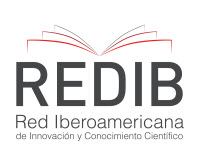QUANTUM COMPUTING AND THE CHALLENGE OF TECHNOLOGICAL CAPACITY BUILDING
Abstract
This article explores educational initiatives for teaching quantum technologies in schools and universities, highlighting their purposes, methodologies, and challenges. In order to bring students closer to the fundamental concepts of quantum technologies, several teaching programs adopt interactive activities and simulators, offering a practical and intuitive introduction to the subject. The need for qualified professionals in the area is growing, because of the advancement of quantum computing, a great demand for specialized labor is expected in the coming years. Industries in several sectors already recognize the potential of this technology, reinforcing the urgency of training professionals capable of developing and applying quantum solutions. An exploratory survey was conducted of institutions that have integrated SPINQ quantum computers, compact devices that are relatively more affordable than traditional quantum computers, which offer a practical and interactive experience. With them, students visualize theoretical concepts in a practical context, promoting greater understanding and interest in the field. However, the adoption of quantum computers in education faces substantial challenges. High costs, limited infrastructure and a lack of specialized teachers are the main barriers, especially in countries with lower investment in education. Thus, while quantum technologies show great educational potential, their implementation requires significant structural investments to become viable and effective.
Downloads
Downloads
Published
Issue
Section
License
A “Revista Tecnológica da Fatec de Americana” é uma publicação semestral digital de responsabilidade da “Faculdade de Tecnologia de Americana”, “Centro Estadual de Educação Tecnológica Paula Souza”, com a publicação de trabalhos de caráter interdisciplinar realizados pelas comunidades discente, docente e pesquisadores internos e bem como por pesquisadores externos.
The “Revista Tecnológica da Fatec Americana” is a biannual digital publication, under “Faculdade de Tecnologia de Americana” responsability, from “Centro Estadual de Educação
Tecnológica Paula Souza”, which encompasses interdisciplinary papers submitted by students, professors and researches of the community as well as external researches.
La “Revista Tecnológica da Fatec Americana” es una publicación digital semestral de responsabilidad de esa “Faculdade de Tecnologia de Americana”, “Centro Estadual de Educação Tecnológica Paula Souza”, cuyo objetivo es publicar trabajos de carácter interdisciplinario realizados tanto por el profesorado, por el alunnado e investigadores internos, como por investigadores externos.
É permitido a reprodução parcial desde que citado a fonte.
Partial reproduction is permitted if the source is cited.
Su reproducción parcial está permitida siempre e cuando se mencione la fuente.
Políticas editoriais: Leia em www.fatec.edu.br/revista/politicas
Editorial Politics: Read in www.fatec.edu.br/revista/politicas
Sítio: www.fatec.edu.br/revista
Site: www.fatec.edu.br/revista






